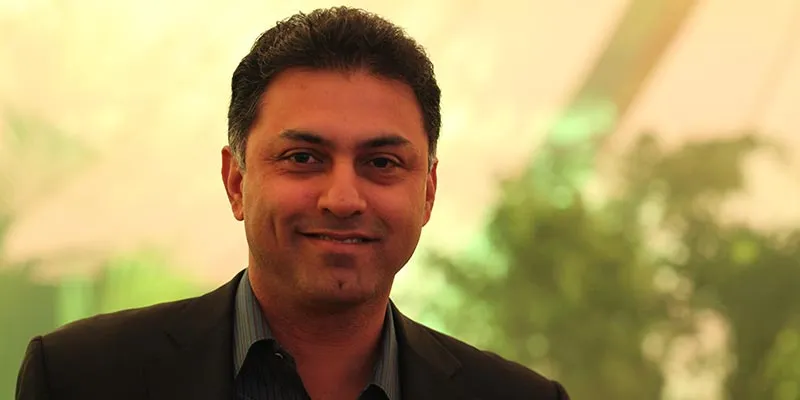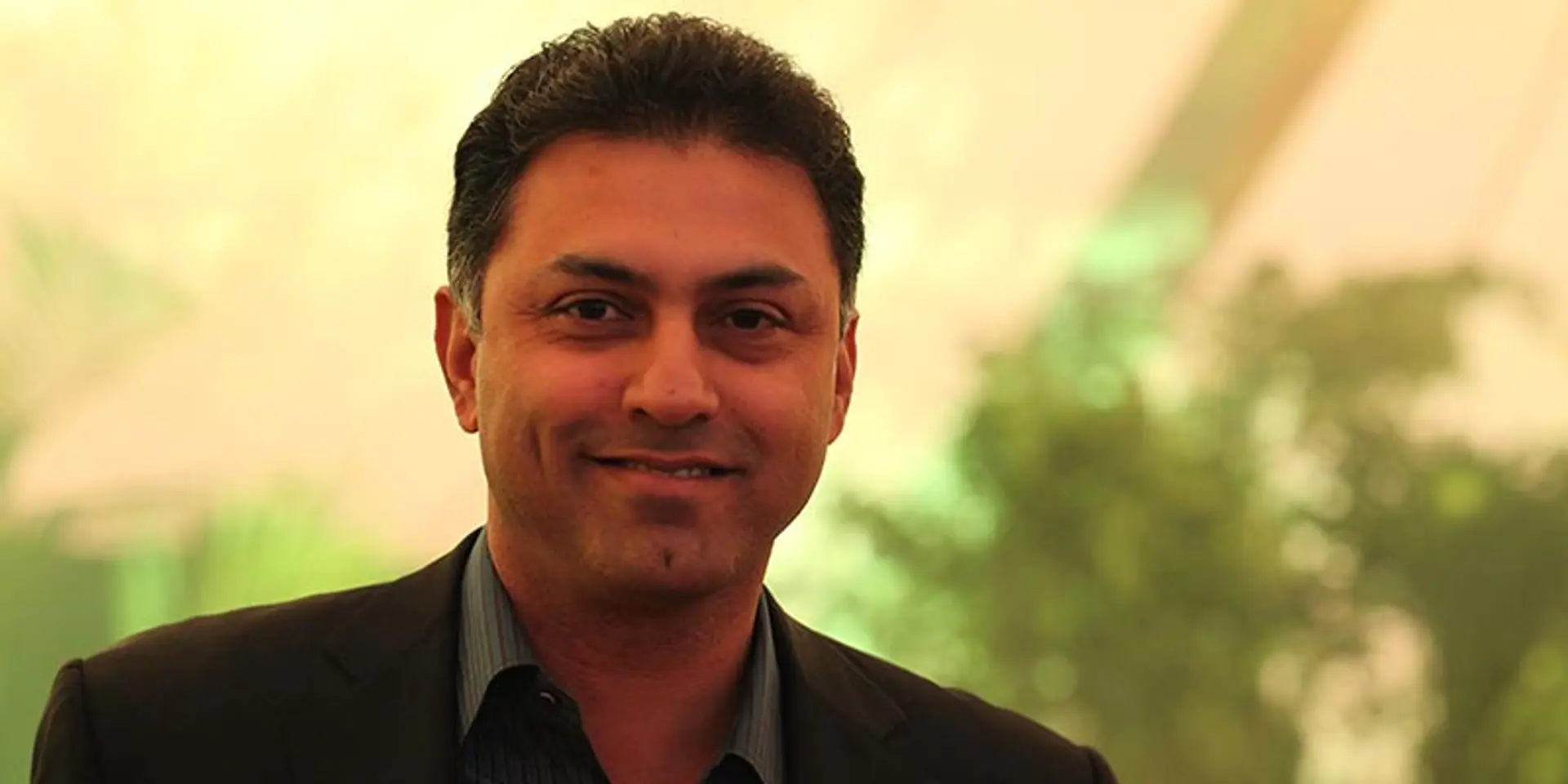Nikesh Arora faces harsh questions from unnamed SoftBank investors. Will he emerge unscathed?
Earlier in Janaury 2016 at the government's Startup India event, Masayoshi Son, founder and current CEO of SoftBank famously said,
Whenever I invest, I look at the eyes of the entrepreneur....
Now it looks like a handful of unnamed investors of SoftBank Group Corp are not seeing 'eye to eye' with Masayoshi Son's appointment of Ex-Google Executive Nikesh Arora, according to a report by news wire Bloomberg. However, the same report states that the Softbank management is strongly rallying behind Nikesh, who joined the investment firm barely two years ago.

The report, released earlier on Thursday, said that some investors had submitted a sharply critical, 11-page letter to the Softbank Board to investigate and possibly dismiss Nikesh, who is currently the company’s second in command and also believed to be the heir apparent to billionaire founder Masayoshi Son.
While the identity of the accusers is currently not known (barring one), the request came in a letter to SoftBank’s board dated Jan. 20 from the American law firm Boies Schiller & Flexner and signed by Matthew Schwartz, a partner at the New York firm, without identifying the shareholders or how much stock they own. The investors are demanding that the boards at SoftBank and Sprint conduct 'an internal investigation' by an independent firm.
According to Bloomberg sources, the letter alleges three broad areas of concern regarding Nikesh:
a) Conflict of interest
One of the criticisms is that Nikesh has possible conflicts of interest due to his role as a senior adviser to private equity firm Silver Lake. This, the letter claimed, could make him put his personal interests ahead of those of SoftBank. It also suggests he may have been involved in past wrongdoings and generally poor business decisions.
The letter contends that Nikesh is getting compensated by Silver Lake for helping with potential technology company investments that are similar to the investments he is supposed to be making for SoftBank. The letter reads, according to Bloomberg:
This dual role has the potential to reward Silver Lake to the detriment of SoftBank.
One of the investors challenging Nikesh is Nicolas Giannakopoulos, a 46-year-old Swiss national. He did not reveal the identity of other investors, how broad the investor group is or how many shares they own. A separate letter from one investor to the board of Sprint Corp., asks for his removal as a director there for similar reasons.
b) Poor performance in making investments
The investors criticised Nikesh’s allegedly 'poor investment performance and a series of questionable transactions' during his tenure. Schwartz wrote,
Despite these issues, the SoftBank board saw fit to make Mr. Arora the third-highest paid executive in the world without any track record of accomplishment at the company.
The investor letter contends that Nikesh’s investment track record has been 'lackluster'. It focuses on two deals - SoftBank’s investment in an online video site called DramaFever and another investment in Indian real estate portal Housing.com. In both cases, according to the letter, the ventures ran into trouble shortly after SoftBank put in money.
c) Excessive compensation without sufficient disclosure.
The third area of concern is Nikesh’s compensation. In June, SoftBank had said it paid him 16.6 billion yen for the seven months of the previous fiscal year, making Nikesh the highest paid executive on record in Japan at the time. The letter termed this 'alarming and intolerable' as the shareholders had seen no benefit from his joining SoftBank.
SoftBank's stance
SoftBank denied any wrongdoing by Nikesh and called the allegations "unsubstantiated" from "unidentified shareholders". The Tokyo-based firm said it vets any potential conflicts in Nikesh’s investment decisions and has complete confidence in his management.
It said the board is in the process of reviewing the letter. While Sprint declined to comment to Bloomberg, Masayoshi Son said in a statement.
I have complete trust in Nikesh and one thousand percent confidence in him and know he will continue to do great things for SoftBank in the future.
SoftBank has responded to each of the three accusations-
a) Minimal involvement with Silver Lake
Nikesh said he has shared any information that would present a potential conflict. “I think my track record speaks for itself,” he said. He estimated that he has spent a total of 10 to 20 hours on the position in the last year. He added, in the report:
Since my time at SoftBank, the last 18 months, I always strived to put the company first and I think none of the comments have any substantive bearing in fact.
He also said he may end the advisory role at Silver Lake when his current contract expires.
SoftBank claimed to be completely aware of Nikesh’s involvement with Silver Lake. It said it vets any potential conflicts and if investments present potential problems, they are examined by top executives including Son. The company said it is comfortable with Nikesh’s position as an adviser at Silver Lake and that SoftBank in fact benefits from his involvement there.
b) Some failures to be expected because of high risk in backing startups
SoftBank said the business of backing startups, which Nikesh leads at the company, is by nature fraught with high risk. Just focusing on two troubled deals does not reflect on the overall investment track record, it said. The company said it is satisfied with Nikesh’s strategy and that other startups he has backed, including India’s Snapdeal, have thrived. Paul Kranhold, a spokesman for SoftBank said,
It is entirely premature to evaluate an investment track record after 18 months; SoftBank is a long term investor.
Nikesh also said it is too early to judge portfolio performance.
c) Compensation reasonable for skills and experience
SoftBank said Nikesh’s compensation was reasonable and that part of his pay was a signing bonus. The report stated that Nikesh held unvested Google stock options and other securities worth more than $76 million at the end of 2013, according to the last proxy statement before his departure. He would have lost out on that amount when he joined SoftBank.
Nikesh Arora's journey so far
Prior to joining SoftBank, Nikesh had worked for a decade at the search giant, Google, rising to become the top sales executive and later Chief Business Officer. He joined SoftBank in 2014 and was promoted to president about a year later.
At SoftBank he set his eyes on a variety of global startups and was involved in investing more than $1 billion into some of India's most well known startups, including OYO, Ola and Snapdeal.
In October 2015, at a fireside chat with Kalaari Capital MD Vani Kola in Bengaluru, Nikesh gave the audience an insight into how SoftBank works and evaluates startups, his views on India and Silicon valley. One of his most notable quotes from the event was,
I said this to a portfolio company today, at some point in time you have to get de-addicted from OPM. OPM is “other people’s money”. All these startups in India are actually addicted to OPM; nobody is making profits. They get the money and burn it. Then they say we need more money and they burn it. So at some point they are going to have to get de-addicted.
Related read from 2015: Nikesh Arora unplugged
Nikesh has also made an unprecedented personal bet on the future of SoftBank. In August 2015, he said he would buy 60 billion yen of the company’s shares, worth $483 million at the time.
The final showdown?
Schwartz, the Boies Schiller attorney, said in the Bloomberg report that SoftBank has not responded to his letter. He said,
We are actively considering our next steps.
The letter says that the investors intend to pursue other remedies, including legal action, if the boards of SoftBank and Sprint did not announce an investigation within 60 days. The 60-day period ended last month.







